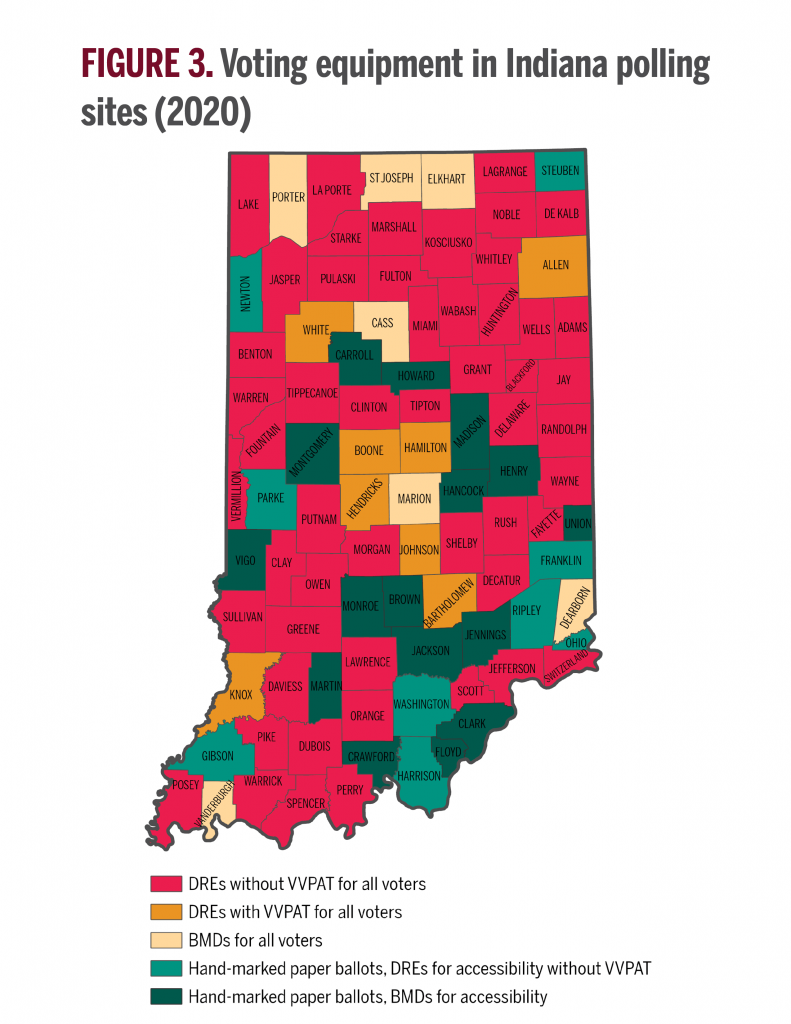
(INDIANAPOLIS) – Indiana is one of only eight states that will use paperless voting machines in the November 2020 elections. Yet new analysis from the IU Public Policy Institute finds that the state’s reliance on older paperless voting machines could pose security risks in the upcoming election.
In 52 of Indiana’s 92 counties, voters submit their ballots using direct-recording electronic voting machines (DREs) that do not include a verified paper trail for votes. These machines account for nearly 60 percent of the state’s voting equipment and affect the majority of Hoosier voters.

“Without a verifiable paper record of votes, it can be difficult to detect security breaches or errors in the electronic systems,” says Joti Martin, a policy analyst at PPI. “Without that paper trail, it also is more challenging to try to recount or audit votes in the event of an election-related issue.”
In 2018, complaints surfaced in Texas and Georgia alleging that DREs used during the elections either switched or deleted votes, likely due to a software glitch blamed on outdated software and old machines. Indiana’s voting equipment is also aging. In the last presidential election, 83 percent of counties in the state used voting machines that were at least 8 years old.

A federal lawsuit was filed to replace paperless voting machines throughout Indiana in 2019. That same year, a law was passed requiring all Indiana counties to move to paper trail voting systems by 2030. However, this timeline leaves elections vulnerable for the next decade. While some areas in the state have already moved to paper-based voting systems, other jurisdictions say that a lack of funding is holding them back.
“Jurisdictions that cannot update their machines before the November 2020 elections should take extra precautions in storing, maintaining, and testing machines both before and after the election,” Martin adds. “We also recommend they upgrade their plans for post-election audits to ensure votes are counted accurately, and to adopt effective practices for machine maintenance and poll worker training.”
The full policy brief is available on the IU Public Policy Institute’s website.
About the IU Public Policy Institute:
The IU Public Policy Institute, housed within the O’Neill School of Public and Environmental Affairs, produces unbiased research and data-driven, objective, expert analysis that helps those in the public, private, and nonprofit sectors make better decisions that directly impact quality of life in Indiana and throughout the nation. Learn more at policyinstitute.iu.edu.



